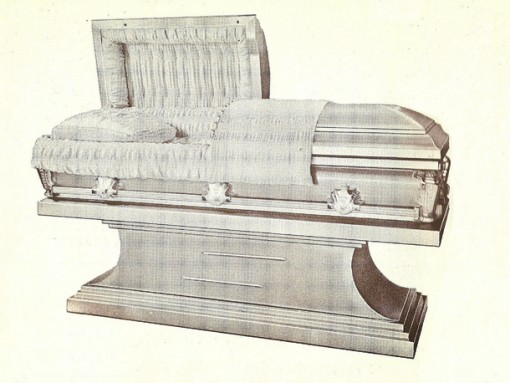Matthew Vollmer
Not too long ago, I took my friend Judy to Mt. Rogers, the highest peak in Virginia. Judy had been wanting very much to visit the mountain where she’d grown up, but because she has trouble walking and because she refuses to drive on highways, and because nobody else she knew had any interest in accompanying her, I promised that one day I would drive her there myself. I’d visited Mt. Rogers once before, with a man named Justin, who used to be a colleague of mine. Justin lived with his wife and infant son in a house shaped like a half-sphere outside of Floyd, Virginia, a town known for its General Store, where locals gather on Fridays to dance to old time mountain music. Before he abandoned academia, to return with his wife and son to live on Orcas Island in Washington State and work as a harbor master, Justin had planned to renovate and live with his family in an old school bus he was turning into a mobile apartment, renovated using slabs of wood from his furniture-making neighbor. Justin and I had hiked Mt. Rogers in a snowstorm. Wild ponies, their eyelashes clotted with flakes, approached us as on the way up. At the top of the mountain, there was no view, only evergreens laden with snow. I have to imagine that Judy—a rather large woman with gray hair who always wore purple and often draped costume jewelry around her neck—wouldn’t much like to live in a bus; she had recently retired from serving, after eighteen years, as a Fiscal Technician in the English Department where I work. Everyone in our department knew Judy; if you ever purchased something or served as host for a department-sponsored dinner at a local restaurant or sought reimbursement for travel, Judy was the person to whom you delivered the requisite paperwork. Her office door was plastered with laminated papers: photographs of wild animals and Native American prayers. Judy’s great-great grandfather fled North Carolina after the Indian Removal Act of 1830, and thus avoided being forced at bayonet point to walk what is now known as “the Trail of Tears.” From talking to people at work about Judy, it seems as though very few people knew this about her; then again, a number of people seemed not to like Judy very much. These people thought Judy was slow, or incompetent, or rude, or gruff. It’s true that Judy could be brusque, and perhaps at times she took longer than one might have liked or expected. But she was not incompetent. She simply knew the rules. And she didn’t make the rules—the Comptroller made the rules. Thus, she knew better than anyone that if you didn’t follow them, you wouldn’t be reimbursed, and you would therefore be wasting your time, as well as hers. Of course, it is easier for some people than others to follow the rules, and it is easy for me to imagine that Judy has always been one of these people, ever since she was a little girl. Judy’s great-great-grandfather had 22 children—ten with his first wife, and twelve with his second. These descendants settled on Straight Mountain, which is now part of the Mt. Rogers National Recreation Area. Judy grew up on top of one of these ridges, and lived there until she was twelve, when the United States government ordered her family to leave. Nobody in Judy’s family told her why—at least not until many years later. Judy had said, on more than one occasion, that she’d love to go back to Mt. Rogers but that she had nobody to take her—and she herself refused to drive on highways. Her husband had never wanted to visit Mt. Rogers and, according to Judy, couldn’t understand “why anyone would want to go there and see all that old stuff.” So he never went. Now he was dead. Which meant that now Judy was free to go, as long as she could find a ride. So I decided to take her. We agreed to meet at the nearby Christiansburg Park & Ride. I had hoped to meet her at her house on Den Hill Road. I know which house is hers because I’ve driven on Den Hill Road many times, and because she likes to tell people that she lives behind a gated community. To gain entrance into this gated community—that is, to be counted as a member—you have to belong to a very exclusive club. The first rule is: you have to be dead. This is because Judy lives behind a cemetery. Once upon a time, though, she lived on Mt. Rogers. She ate rutabagas, turnips, potatoes, green beans, and sweet corn. Her family raised hogs. They lived in a log cabin with oak shingles that her grandfather built. Back then, Judy used to walk down the mountain and take a bus called the Mountain Lion to the next town to see Gene Autry movies. Back then, you could buy a ticket and box of popcorn and a drink for a quarter. Back then, Judy had rock fights with her uncle Jesse. Now, at the Mt. Rogers visitor’s center museum, there’s a picture of one of Judy’s uncles. He has a white mustache and is driving a team of oxen. During our visit, Judy pointed to a grain cradle and several other kinds of primitive tools that were hanging on the wall of one of the museum’s displays. She remembered those tools. She remembered the axe she wasn’t allowed to use. It was two-bladed. She once tried to chop down a chestnut tree. Have you ever tried to chop down a chestnut tree? It’s not easy. Judy knows because when she was a girl, she tried. But she didn’t know how strong dead chestnut trees were and so the axe blade bounced back and hit her in the leg; she still has the scar to prove it. Judy’s grandmother also had a scar on her leg. Judy was there when she got it. Her grandmother was in the kitchen, getting breakfast ready. Judy was five, and she guessed, probably hungry and getting in the way. So her grandmother shooed her away. Thirty seconds later, the shotgun her uncle was cleaning went off and shot her grandmother in the leg. Her grandmother was wrapped in blankets and placed on a sled and pulled by horse to the hospital. She survived. But seventy years later, Judy can still remember the blood, and it brings her to tears. She also remembers the hiker on the Appalachian Trail who stopped by the cabin to ask if he might refill his canteen at the family cabin. He must have liked the look of the place because he asked if he might sleep on the porch for the night. Judy’s grandmother said, “No way!” She wouldn’t stand for him sleeping on the porch. Instead, he slept in her bed—and Judy’s grandmother slept with her. The next morning, the stranger ate breakfast with the family, and Judy’s grandmother made him a sack lunch. After finishing his breakfast, the stranger said goodbye and left the cabin. That’s when Judy’s grandmother noticed that he’d left his lunch behind, so she ran to the door to yell for him but he was already gone. Judy and her grandmother ran outside and around the cabin but they couldn’t locate him; he seemed simply to have vanished into thin air. Nobody could have disappeared that quickly—no human at least. Which meant, of course, that he was an angel. And Judy believes in angels, has seen their handiwork firsthand. For instance, she used to have a big blue spruce in her yard. She was afraid that someday that a storm might come along and blow it down, and when that happened, it would fall right through the roof. And then one day, it did fall. But not on the house. And not on Judy’s car. It fell right between the car and the house. Who could have guided that tree to its final resting spot if not for an angel? And Judy should know. She is, after all, a self-described grandma prayer warrior. She wrote a book and published it herself. The book is about the unbearable grief that attends mothers who have lost their sons, but also about a Christian acapella group called Home Free that Judy has spent much time praying for. But Judy’s not all sugar and spice. She used to tease her mother by calling her “Mommy Cousin,” because her mother and father were second cousins. Judy is proud of this and not proud. She knows she was trouble. She knows, too, that there are some people in our department who are glad that she’s gone. But that won’t hurt her feelings. She’s survived worse. For instance, when her mother was three months pregnant with Judy, Judy’s father became very drunk and, as was his habit, very angry. After an argument, her mother left the room and shut the door behind her. Judy’s father emptied a revolver into the door that she’d shut. Luckily, none of those bullets found Judy or her mother. Years later, when Judy went to visit her grandmother on her father’s side, the family went to the National Zoo, in Washington, DC. Her father, who was very drunk, started bothering people, interrupting them, poking random children in the arm. Not long after, Judy and her family were escorted out of the zoo. On the way home, her father leapt out of the car, while it was moving. Judy’s grandmother didn’t stop. “He’ll be okay,” she said, and kept driving. That was the last time Judy saw her father alive. He died twelve years later. I suspect Judy hasn’t much missed him. But I know she misses the cabin she grew up in on Mt. Rogers, before it was taken apart and carted away. She doesn’t know where it is now. And because she doesn’t have a key to the gate that blocks a road leading to her family cemetery, she can’t pay her respects to her dead relatives, some of whom, I have to assume, were there the time it snowed on the Fourth of July. Just, out of nowhere, a snowstorm. On July the fourth. Can you imagine? Can you see the checkered tablecloth laid out upon the ground? The basket with its apples and milk bottle and fried chicken and corn bread? And then the wind picking up, the dark clouds roiling overhead, the sting of flakes as they burned against your skin? It sounds crazy, I know. But the weather at that height is unpredictable, and sometimes things happen that we simply can’t understand. Most importantly, I know Judy’s not the kind of person who makes stuff up, and I have to believe her when she says it’s all absolutely true.
Matthew Vollmer is the author of two story collections—Future Missionaries of America and Gateway to Paradise—as well as two collections of essays—inscriptions for headstones and Permanent Exhibit. He was the editor of A Book of Uncommon Prayer, which collects invocations from over 60 acclaimed and emerging authors, and was co-editor of Fakes: An Anthology of Pseudo-Interviews, Faux-Lectures, Quasi-Letters, “Found” Texts, and Other Fraudulent Artifacts. His work has appeared in venues such as The Paris Review, Glimmer Train, Ploughshares, Tin House, and Best American Essays, among others. A winner of a fellowship from the National Endowment of the Arts, he teaches creative writing and literature in the English Department at Virginia Tech, where he is an Associate Professor. Follow him on Twitter at @MatthewVollmer.


